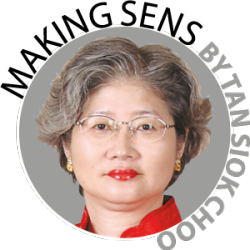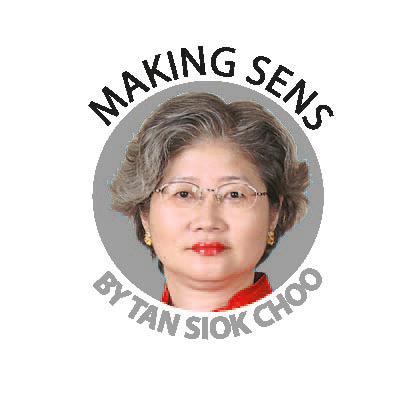IF a weapon used to bludgeon an opponent is massive, does this mean the aggressor of the slugfest perceives his adversary as formidable? And if the armament fails to inflict life-threatening and permanent injuries, will the fight be deemed a defeat for the provoker and a victory for the intended victim?
These questions are prompted by US President Donald Trump’s attempts to emasculate Huawei Technologies, the second-largest manufacturer of mobile phones worldwide.
Claiming US sanctions against Iran had been breached, the Trump administration included Huawei in the Commerce Department’s Entity list last month – an initiative that bans US companies from using Huawei equipment and prohibits the tech giant from buying US-made parts without Washington’s approval.
Last December, Meng Wanzhou, Huawei’s chief financial officer and daughter of founder Ren Zheng Fei, was arrested in Canada on American charges of violating sanctions on Iran.
Ren acknowledged the ban could impact Huawei significantly. Its revenue could tumble – by a combined US$30 billion over two years – to about US$100 billion this year and a similar figure next year. Reiterating the repercussions, although significant, will be temporary, Ren said Huawei will be “reborn” by 2021.
Forewarned by similar US sanctions against ZTE Corp in mid-2018 that almost bankrupted the Chinese tech company, Huawei began stockpiling chips and other vital components, Ren pointed out.
Whether Trump’s proposed technological Great Wall succeeds in ring-fencing Huawei and other Chinese companies will depend on Australia, Canada and European countries agreeing to join this tech embargo.
“So far, despite threats from the United States that any allies that side with Huawei and China will be cut off from American intelligence, many are trying desperately to straddle the wall,” David Sanger writes in the New York Times.
Huawei procures around US$67 billion worth of components every year, with roughly US$11 billion coming from US suppliers, Atsushi Nakayama writes in the Nikkei Asian Review. China’s gargantuan budget for tech purchases prompts suppliers to think hard before agreeing to comply with the embargo, Nakayama adds.
Only two close US allies have followed America’s embargo. “Australia has banned Huawei from building its new networks; Japan has effectively done the same. Britain and Germany, two of the most powerful members of the North Atlantic Treaty Organisation (Nato), are hedging,” Sanger adds.
“Their politicians’ fear the job losses that would result as well as Chinese retaliation, and they believe there are elements of the network that Huawei could build without endangering national security,” Sanger points out.
If Bonn backs Washington, German officials are concerned Beijing could threaten joint ventures that produce about one million BMW and Mercedes-Benz cars in China, Sanger suggests.
Many American companies have applied for exemptions to enable them to continue trading with Huawei. According to the Semiconductor Industry Association, Huawei is the third-largest buyer of US-made computer chips.
Additionally, Huawei is the leading maker of telecommunications equipment crucial to the rollout of the next generation of wireless technology known as 5G, Reed Albergotti writes in Washington Post.
Trump’s Great Technology Wall could also fail because the proposed encirclement is happening years – if not decades – too late.
“In public and private statements, American intelligence officials and telecommunications executives and experts have begun to concede that the United States will be operating in a world where Huawei and other Chinese telecom companies most likely control 40-60% of the networks over which businesses, diplomats, spies and citizens do business,” Sanger reports.
Furthermore, previous attempts to prevent China from acquiring needed foreign technology failed completely. Despite being almost entirely cut off from the US for the past two decades, China managed to build most of its satellites and rocket components from scratch, Lorand Laskai noted in Foreign Affairs magazine.
Writing in Washington Post, Fareed Zakaria suggests blacklisting Huawei could be counter-productive.
“The Trump administration’s decision to blacklist Huawei – the world’s seventh-largest technology company – might well be China’s Sputnik moment, with seismic consequences,” Fareed wrote.
Sputnik was the Soviet Union’s first earth-orbiting artificial satellite launched in 1957, an event that challenged the shell-shocked Americans to accelerate their efforts to surpass the Russians.
Although top Chinese leaders have strongly urged tech companies to become self-reliant and give priority to indigenous innovation, tech companies’ response was lukewarm. Behemoths like Alibaba, Baidu and Tencent became super-wealthy through using Western technology.
Sanctioning Chinese tech companies like Huawei has “turbocharged China’s self-reliance drive, aligning the interests of government and industry. Although in the short term the pain imposed on China’s tech industry by the blacklisting might appear to vindicate the (Trump) administration’s move, over the long term, its actions will pave the way to a more technologically formidable China,” Laskai warns.
Going forward, Trump’s blacklisting, intended to be a bazooka could turn out to be a boomerang.
Opinions expressed in this article are the personal views of the writer and should not be attributed to any organisation she is connected with. She can be contacted at siokchoo@thesundaily.com














